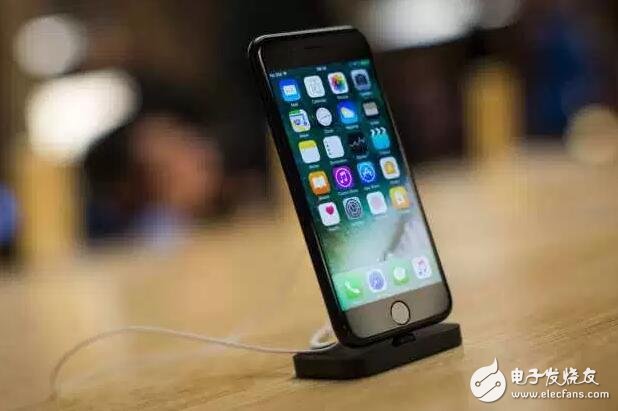Maybe you can't buy an iPhone in the US! Qualcomm seeks import ban to counter Apple
Electronic enthusiasts early eight: On May 4, foreign media reported that Qualcomm may seek an import ban on the iPhone from the US trade department, as Apple refused to continue to pay billions of dollars in patent license fees. The fight back.
Bloomberg quoted people familiar with the matter as saying that Qualcomm is preparing to file an application with the InternaTIonal Trade Commission to ban iPhone imports from other countries. Since Apple's star product iPhone is mainly made in Asia, the ban apparently deliberately rushed to block the US market before Apple released its heavy new iPhone this fall. If the ban is implemented, the iPhone will not be able to enter the US market, and Apple may suffer a 40% loss in sales.
The US International Trade Commission is a quasi-judicial body based in Washington. It has the right to prohibit the import of goods into the United States, and the handling of cases is also more efficient than the Federal District Court.

This smoke-free war can be traced back to January 20, 2017, when Apple filed a lawsuit against Gutong for collecting patent fees. Long-term partnerships have begun to collapse. Apple said that Qualcomm has squandered Apple’s investigations with multinational antitrust regulators and overcharged patent fees. Qualcomm countered that Apple had misunderstood the contracts.
Apple then filed a lawsuit against Qualcomm worldwide. Shortly after the US prosecution, Apple filed a lawsuit in Beijing against the Beijing Intellectual Property Court, saying that Qualcomm abused its position in the chip industry and sought compensation for losses of 1 billion yuan (about 145.32 million US dollars). In March of this year, Apple sued Qualcomm in the UK. According to British local court documents, the UK lawsuit involved patent and registration design issues, but did not give detailed information.
In response to Apple’s allegations, Qualcomm filed a counterclaim on April 10, claiming that Apple has used its huge market influence to launch attacks around the world, threatening Qualcomm to accept unequal contracts.
Due to the influence of Qualcomm lawsuits, some of the regulator chips in Apple's iPhone 7 and iPhone 7 Plus were taken from Intel.
Kevin Cassidy, an analyst at financial services agency STIfel Nicolaus, believes that the outcome of this fierce battle may be even worse. If Qualcomm does not take any measures to let Apple do whatever it wants, other companies or countries will refuse to pay royalties.
At present, in addition to the Chinese government's Qualcomm anti-monopoly investigation, the EU and South Korea are still conducting anti-monopoly investigations on Qualcomm.
In the process of prosecution and counterclaim, Qualcomm cut its estimate of current quarterly profit and operating income. Qualcomm lowered its estimate of target earnings for the quarter by about $500 million, considering the possibility of Apple's refusal to pay license fees. If Apple continues to refuse to pay, it may cause Qualcomm to lose one-third of its authorized revenue this year.
In 2016, Qualcomm's licensing business generated revenues of up to $7.7 billion and generated $6.5 billion in profits.
Disclaimer: The electronic reprinted works of E-Commerce Network are as far as possible to indicate the source, and all rights of the owner of the work are not transferred due to the reprint of this site. If the author does not agree to reprint, please inform the site to delete or correct it. Reprinted works may be subject to change in title or content.
Fiber Optic Cleaver,Fujikura Fiber Optic Cleaver,Metal Precision Fiber Cleaver,Smart Automatic Fiber Cleaver
Guangdong Tumtec Communication Technology Co., Ltd , https://www.gdtumtec.com